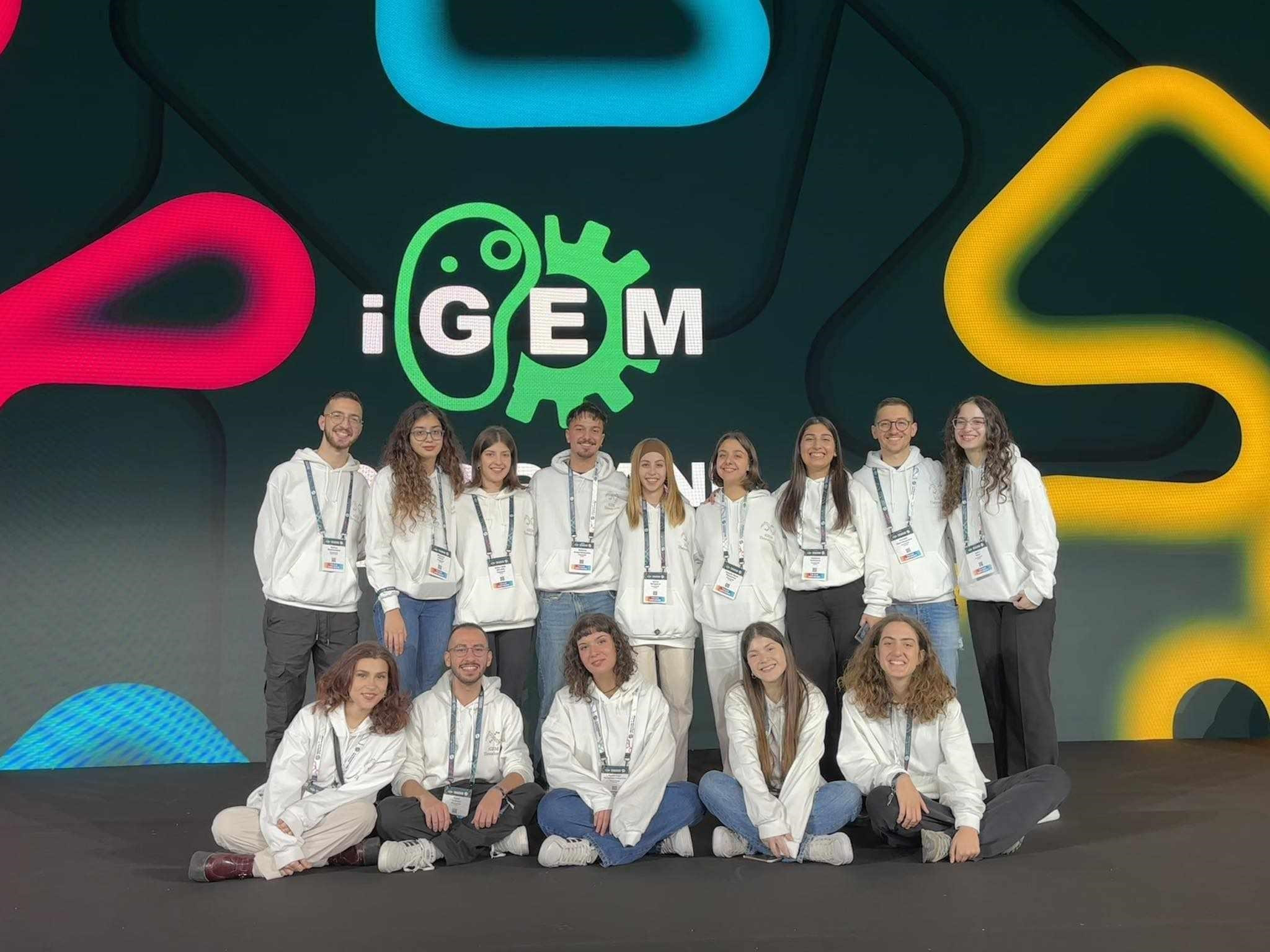The silver medal that AUTH’s iGEM won this year is not the first, as it won the gold medal in 2017, the silver medal in 2018, the gold medal in 2019 and the silver medal in 2022.
Its dominance among student research groups of leading universities of the world was confirmed for another year by the student interdisciplinary team of AUTH “iGEM Thessaloniki”, returning from Paris, where the World Synthetic Biology Competition “iGEM 2023” took place (November 2-5), with a silver medal and a special award, introducing ‘Euphoresis’, an innovative ‘weapon’ to combat the effects of forest fires.
The AUTH team won the special Best Sustainable Development Impact Award, in the category of undergraduate teams, as its research project was evaluated by the judges of the Global Competition as being in the best possible way with the objectives of Sustainable Development set by the UN in 2015 and will therefore have a positive impact on sustainable development. The distinction brings for the first time the “iGEM Thessaloniki” team to the first step of the podium in a special award of the “Special Awards” category of the “iGEM” competition.
The silver medal that AUTH’s iGEM won this year is not the first, as it won the gold medal in 2017, the silver medal in 2018, the gold medal in 2019 and the silver medal in 2022.
Research groups from leading universities (MIT, Cambridge, Oxford, Harvard, etc.) participated in the World Competition. In this year’s anniversary event to celebrate 20 years of the iGEM institution, 400 teams from 66 countries took part, vying for the competition’s special awards and medals.
The Competition and “iGEM Thessaloniki”
The “iGEM Competition” started in 2003 as an initiative of MIT University and since then has been organized every year in Boston, USA, under the auspices of the non-profit foundation “iGEM Foundation” and has highlighted many important developments, scientific publications and start-ups.
This year’s AUTH team consists of 18 members and it is made up of AUTH undergraduate students from the Department of Biology Markos Mathioudakis, Angeliki-Maria Papapanou, Asimenia Ioannidou and Stefanos Anagnostopoulos, from the Department of Chemistry Angeliki-Argyri Savvopoulou-Tzakopoulou, Ioanna Geroyannis and Michaela Verberi, from the Department of Medicine Artemis-Chrysanthi Savva and Panagiota Baka, from the Department of Pharmacy Raphael Andreou and Thetis Tsinoglou, from the Department of Agriculture Nefeli-Maria Makri. The team also includes Sultana Delizisi from the Democritus University of Thrace and Niki Efstathiou from the International University of Greece. The group’s instructors are Dr. from the Department of Medicine of AUTH. Konstantina Psatha and Christos Giannakopoulos from the Biology Department of AUTH.
The main scientific leader of the group is, for the third year, Mr. Professor of the Department of Medicine of AUTH and Coordinator of the interdisciplinary group of Functional Protein Analysis and Systems Biology (FunPATh, KEDEK AUTH), Michalis Aivaliotis and co-responsible is Mr. Professor of the Department of Biology, Director of the Department of Botany and head of the Cyanolab research group of AUTH Spyros Gelis.
The awarded proposal
“Euphoresis” (Euphoresis: a synbio soil-ution for forest) is the first application of Synthetic Biology in forest lands, which deals with the production of a natural polymer to prevent desertification and erosion phenomena, and the targeted modification of microorganisms for soil enrichment in nutrients necessary to rehabilitate the ecosystem after a fire.
In more detail, “iGEM Thessaloniki” proposes the creation of a hydrophilic, polysaccharide polymer in the form of a hydrogel, which will contribute to the absorbency of water, as well as water-soluble nutrients, and will be placed on the burnt ground. In fact, following the axes of the Circular Economy and Sustainable Development, the polymer will be produced from the processing of by-products of the food industry and more specifically from shellfish shells and citrus peels. The properties of the hydrogel will be enhanced by the addition of a synthetic antimicrobial peptide, produced by synthetic biology techniques. Inside the polymer will be hosted a microbial consortium (consortium) of selected strains of microorganisms. In addition, inside the polymer will be seeds of endemic plants which under favorable conditions will germinate, giving life again to the burnt forest lands.
Its project name comes from the combination of the Greek words “euphoria” and “genesis”. The aim of “Euphoresis” is to make it available to state bodies, such as e.g. to the Fire Service, Forestry Departments, etc., of an innovative “weapon” to deal with the effects of forest fires, completely safe for the ecosystem.
Source: Skai
I have worked as a journalist for over 10 years, and my work has been featured on many different news websites. I am also an author, and my work has been published in several books. I specialize in opinion writing, and I often write about current events and controversial topics. I am a very well-rounded writer, and I have a lot of experience in different areas of journalism. I am a very hard worker, and I am always willing to put in the extra effort to get the job done.











